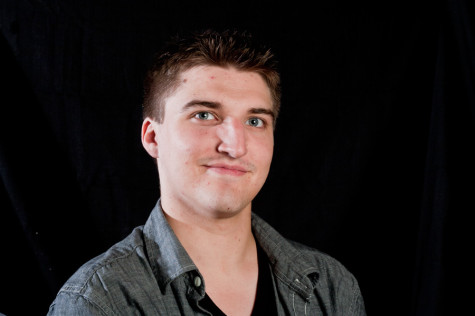Charleston Autism center opens to help educate, treat community members
September 10, 2014
Eastern’s Autism Center has made its opening this fall in an attempt to help younger children and families understand and treat autism.
Last year the center had turned to crowd sourcing in order to raise funds in an attempt to get the center started.
Crowd sourcing was a new way of gathering funds by using social media and email to contact individuals to raise funds for the center.
Gail Richard, the interim director of the Autism Center, said she believes the center is off to a great start for having only been open three weeks.
Richard said she has already been scheduling evaluations for children who may have autism and she is currently booked with appointments through December.
Richard said this is because many people in the Coles County area do not have knowledge of autism or who falls on the autism spectrum.
She said another reason for the center seeing so many clients is because people in the area do not have many other places to go.
Richard said many people in small rural communities away from big cities such as St. Louis or Chicago do not have the luxury of having an autism center nearby.
The center is also offering support services for students on campus who have autism.
“This support service allows students to get grounded and make sure they get comfortable in this new environment so they can be successful,” Richard said.
Previously, the speech and hearing clinic at Eastern offered evaluations for kids who may have autism.
Richard said when the evaluations ran through only the clinic, there was a longer wait time for people to receive their evaluation. The Autism Center has a waiting period of about six months, while clinics typically have waiting periods of a year to 18 months.
Richard said getting children evaluated early in life is important so they can start the process of dealing with autism.
Other services the center offers include consultations for any local schools that may have students who are autistic.
These consultations are geared toward the faculty in the school in order to teach them how to help students who are autistic, Richard said
These consultations may not begin until next year, Richard said.
Currently, students are involved with the autism clinic, and Richard has a graduate student involved in the student support group for Eastern students with autism. Students are also involved in helping with the evaluations done on children with possible autism.
Richard said the next step in getting more students involved is to have them participate in the consultations she hopes to start sometime next year.
This can be done by taking a graduate assistant out with her to some of the schools to observe and get experience with autism, Richard said.
Another service the center is hoping to offer sometime in the foreseeable future is to offer support for families. The family support groups for autism will be done by Richard through a class on autism. The groups can be utilized not just by families but also by teachers and other professionals to inform them about autism and what steps to take to help out students and children.
Richard said the Charleston community will greatly benefit from having the Autism Center.
“I believe the community is really excited about the idea of having a place they can call to get some of their questions answered and to get a recommendation,” Richard said. “That they don’t have to travel miles away to only have a professional see their child for 5 or 10 minutes.”
Richard said their evaluations are very thorough and last usually two to three hours. Richard said the evaluation takes so long because they want to spend a great deal of time with the individual and so the evaluation is fine-tuned to just that particular person.
Richard has been working with autism for over 35 years, and to her it is a “unique disorder” rather than a disease.
Richard said every person with autism is different, but they are all memorable.
Richard said these unique moments keep her on her toes because of the many ways people with autism view the world, and that brings her the most enjoyment in her career.
Blake Warman (@BlakeWarman) can be reached at 581-2812 or brwarman@eiu.edu.




































































